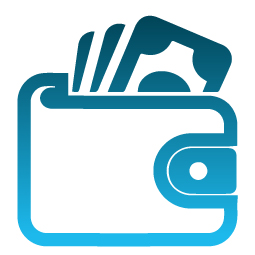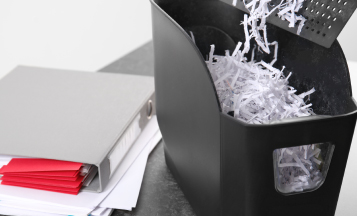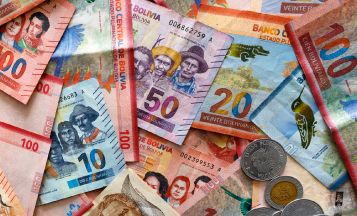Overdrawing your account can be a stressful experience, and while it might seem like just a temporary setback, the consequences can ripple out in ways you might not expect, including affecting your credit score. Read about the steps you can take to avoid these issues.

What Happens When You Overdraw Your Account?
When you spend more money than you have in your checking account, you overdraw your account. This can happen through writing a check, using your debit card, or through automatic bill payments. If your bank or credit union covers the overdrawn amount, they typically charge an overdraft fee. If not, the transaction may be declined, and you could incur a non-sufficient funds (NSF) fee from your bank, as well as additional fees from the merchant.
The Direct Financial Costs
Overdraft and NSF fees can add up quickly. You can be charged an average of $30 to $35 per overdraft, and if multiple transactions go through while your account is overdrawn, the fees can multiply! This can create a cycle of debt where fees eat into your available funds, leading to more overdrafts and more fees.

Indirect Impact on Your Credit
While overdrafts themselves don’t directly impact your credit score, the consequences of consistently overdrawing can. Here’s how:
Bounced Checks and Unpaid Bills:
If an overdrawn account leads to bounced checks or missed bill payments, those missed payments can be reported to the credit bureaus. Payment history is a significant factor in your credit score, and late payments can stay on your credit report for up to seven years.
Collections:
If you can’t cover the negative balance in your account, your bank might close your account and send the debt to a collection agency. Collection accounts are reported to the credit bureaus and can severely damage your credit score.
Closed Accounts:
A closed bank account due to repeated overdrafts can be reported to ChexSystems, a consumer reporting agency that tracks closed checking and savings accounts. If a future lender or financial institution sees this negative record, it can make it harder for you to open new accounts or get credit.
Tips to Avoid Overdrawing Your Account
Monitor Your Account Regularly:
Keep a close eye on your account balance and transactions. Many banks offer mobile apps that make it easy to check your balance and set up alerts for low balances or large transactions.
Use Programs or Systems to Help You Avoid Overdrawing
Link to a Savings Account:
Some financial institutions allow you to link your checking account to a savings account for overdraft protection. If you overdraw your checking account, funds are automatically transferred from your savings account.
Set Up Overdraft Protection:
Consider enrolling in overdraft protection programs that cover overdrafts through a linked credit card or line of credit. Be sure to understand the fees and terms associated with these programs.
Budget and Plan:
Create a budget and stick to it. Knowing your income and expenses can help you avoid overspending.
Additional Unique Programs:
Some financial institutions offer special programs that provide alerts and options to act prior to overdrawing accounts. Nymeo will be offering this helpful service to members soon.
Overdrawing your account might seem like a minor issue, but it can lead to significant financial challenges and potentially impact your credit score. By understanding the risks and taking proactive steps to manage your finances, you can avoid the pitfalls of overdrafts and maintain a healthier financial future.
Category: Financial Literacy & Safety



